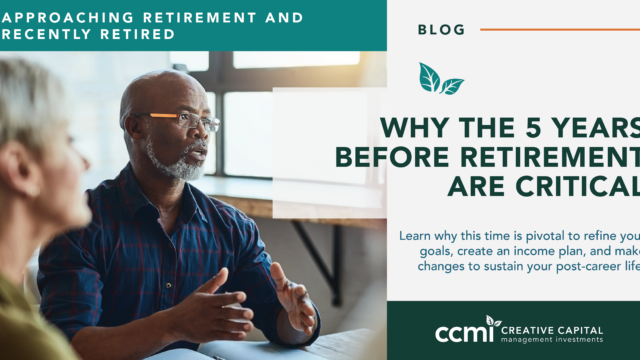It’s time to test your level of financial acumen. Below is a financial literacy quiz we have prepared for different stages of one’s financial life.
Good luck!
Saving for Retirement
- In which scenario, will you have the greatest value at age 65:
Scenario 1: Investing $10,000 a year from age 25 to 35 (10 years) or
Scenario 2: Investing $10,000 per year from age 35 to 65 (30 years)?
Assumes both scenarios have the same annual investment return.
[peekaboo_link name=T1]Answer:
[/peekaboo_link]
[peekaboo_content name=T1]Scenario 1
This illustrates the power of compounding, in other words, in Scenario 1 your annual returns will earn a return on reinvested earnings, over a longer period of time, 40 years, than Scenario 2, 30 years.[/peekaboo_content]
- As a percentage of your pre-retirement income, in retirement how much income will you need?
[peekaboo_link name=T2]Answer:
[/peekaboo_link]
[peekaboo_content name=T2]It depends on:
A) If you have a mortgage on your home, and if so when will it be paid off.
B) How much of your pre-retirement income you were contributing to retirement plans.
C) If your living expenses will increase after you retire, e.g. due to private health insurance premiums before age 65, increasing travel expenses, purchasing a motorhome, etc.The best method of determining how much you will need for your desired living style in retirement, is to do a detailed cash flow analysis of your retirement income and expenses.
[/peekaboo_content]
- Should you contribute to a 401(k) Roth or a regular, tax deferred, 401(k) plan?
Should you contribute to a Roth IRA or a tax-deductible IRA?
Should you contribute to a Roth IRA or a non-deductible IRA?
[peekaboo_link name=T3]Answer:
[/peekaboo_link]
[peekaboo_content name=T3]Contribute to a 401(k) Roth or regular Roth, if you:
Will be in a low-income tax bracket now and will be in a higher income bracket in the future, e.g. college graduate working five months after graduating, someone with a business loss, person with high itemized deductions (medical expenses), etc.Contribute to a regular 401(k) or tax deductible IRA, if you:
Will be in a lower tax bracket in retirement than you are now.If you qualify to contribute to a Roth IRA, it is almost always better to contribute to the Roth IRA vs the non-deductible IRA because the Roth IRA grows tax-free while the non-deductible IRA grows tax-deferred.
[/peekaboo_content]
Business Owners
- How do co-owners in a business allow for a co-owner retiring, dying, becoming disabled, getting divorced or becoming disillusioned?
[peekaboo_link name=T4]Answer:
[/peekaboo_link]
[peekaboo_content name=T4]Every business should have an ownership agreement that details how the business will be valued in the case of retiring, death, disability, divorce or disillusionment. It will also detail how the exiting co-owner’s interest will be paid utilizing, installment note, life insurance (in case of death), disability policy (in the case of disability), etc.In the case of a death of a co-owner, the surviving co-owner may not want to be in business with the deceased owner’s spouse! The surviving owner may want to make it mandatory that the deceased owner’s spouse’s sell his/her interest to the surviving owner.
[/peekaboo_content]
- As I am starting my own business, how do I decide which type of entity to use?
[peekaboo_link name=T5]Answer:
[/peekaboo_link]
[peekaboo_content name=T5]Deciding which business entity best fits the needs of a young company requires careful consideration of various tax and non-tax factors. The most important tax factor to consider is whether the entity will be a C corporation that is itself subject to taxation or if it will be a conduit entity such as a partnership, S Corporation, or an LLC. In the case of conduit entities, the income and loss is reported on its owners’ individual tax returns. Some of the non-tax factors to consider are liability limitation for the founders, what the exit plan is, the tax treatment of different employment benefits and whether the entity plans to go public.
[/peekaboo_content]
Families
- What is the best way to set aside funds for my children’s college education?
[peekaboo_link name=T6]Answer:
[/peekaboo_link]
[peekaboo_content name=T6]Parents’/relatives’ funds deposited into a 529 plan can be controlled by the parent/ relative and the funds can grow tax free if funds are used for qualified higher education expenses, e.g. tuition, room and board, computer purchases school fees, for a college full-time student or a child/grandchild attending a trade school.[/peekaboo_content]
- If you transfer real estate to a child, will there be a reappraisal of the property, resulting in an increase in the property taxes?
[peekaboo_link name=T7]Answer:
[/peekaboo_link]
[peekaboo_content name=T7]No, if the real property is a principal residence and is gifted or received via an inheritance.Yes, if other than a principal residence, e.g. rental or commercial property, is gifted or inherited, and the value is over $1,000,000.
[/peekaboo_content]
- What will happen to minor children when both parents die together without a will or trust? Do I need a will and or trust if I have minor children?
[peekaboo_link name=T8]Answer:
[/peekaboo_link]
[peekaboo_content name=T8]In San Diego, if there is not a signed written document specifying who the guardian of the children will be, the children will go to a child welfare services facilities until the courts can determine who the guardian should be.
[/peekaboo_content]
Life and Disability Insurance
- How do I determine if I have sufficient life insurance?
[peekaboo_link name=T9]Answer:
[/peekaboo_link]
[peekaboo_content name=T9]Reasons for Life Insurance:
A) Life insurance is a necessity if a survivor, spouse, children, parents or someone else, would struggle financially if you were to die.
B) If your estate will incur estate taxes and most of your assets are illiquid, assets that cannot be easily converted into cash without taking a reduction in value of the asset.You need to know:
A) How much life insurance you need will depend on:
– Your annual after-tax living expenses
– Assets that will generate income if you die, rental properties, royalties, etc.
– Other income that will continue if you die, spouse’s income, dividends, interest, gains from marketable securities.
– Other assets such as businesses, partnerships, investments that can be sold.
B) What type of life insurance?
– If you need it only until you retire, term insurance may be the best option.
– If you need it for your lifetime, for estate liquidity, whole life may be the best option.
C) How long you will need the life insurance?
– Until your youngest child graduates from college, until your pension starts, or maybe longer depending on your situation.[/peekaboo_content]
- Do I need disability insurance?
[peekaboo_link name=T10]Answer:
[/peekaboo_link]
[peekaboo_content name=T10]If you are generating income and the income you are generating is important to your family or yourself, and you do not have investment income to offset your lost earned income, you should have disability insurance.Some employers provide disability insurance. If the employer provides the disability insurance as a non-taxable benefit, then you need to know that any disability benefits paid will be taxable income to you. If the employer includes the cost of the disability insurance premiums in your W-2 then any disability insurance benefits paid to you will be non-taxable. When you leave your employer, you may lose your group disability insurance coverage.
If you purchase a private disability insurance policy, you should be sure that the description of disability is “own occupation” not “any occupation”.
[/peekaboo_content]
Miscellaneous
- After age 55 can you transfer your Prop 13 tax basis, of your current home that you sell, to a new home, that you buy?
[peekaboo_link name=T11]Answer:
[/peekaboo_link]
[peekaboo_content name=T11]Yes, if both homes are your principal residences and the new home has a value equal to or lesser than the original home’s selling price and one owner is over the age of 55. You can only do this once in a lifetime. The new replacement property must be purchased or constructed within two years, either before or after the sale of the original property.
[/peekaboo_content]
Encore Years
- When is the best time to start my Social Security benefits?
[peekaboo_link name=T12]Answer:
[/peekaboo_link]
[peekaboo_content name=T12]Depends on:
A) Your health.
B) Your other financial assets that can generate income in retirement before you start Social Security.If you are in good health and expect to live to age 82-84, and do not need the Social Security payments for living expenses prior to age 70, it is usually best to delay your Social Security benefits, as they will increase 8% per year from full retirement age to age 70.
There is no advantage to delaying starting your Social Security after you turn age 70.
[/peekaboo_content]
- When I retire, should I allocate all my investments to fixed income to reduce my portfolio risk?
[peekaboo_link name=T13]Answer:
[/peekaboo_link]
[peekaboo_content name=T13]If you retire at age 65 and expect to live to age 85, you may not want to have the equity allocation the same as you had at age 60; however, you still should have an allocation to equities to offset the declining purchasing power due to inflation.
[/peekaboo_content]
The above information is general in nature and should not be acted upon without consulting a professional. Additionally, the above comments are not legal in nature and seeking advice from an attorney in some instances is recommended. Consider discussing this with a trusted advisor such as a fee-only CFP®.
CCMI provides personalized fee-only financial planning and investment management services to business owners, professionals, individuals and families in San Diego and throughout the country. CCMI has a team of CERTIFIED FINANCIAL PLANNERTM professionals who act as fiduciaries, which means our clients’ interests always come first.
How can we help you?






